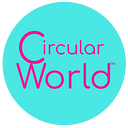Are Spare Parts a Solution to Reducing Waste?
Repair. A function of the Circular Rs. One of the best ways to manage our finite primary raw materials is to reduce waste, and extending the use-cycle of products by being able to repair consumer and industrial goods has become a growing movement. As easy as it may sound, for some customers, NGOs, government agencies and companies, ‘repair’ has become a legal minefield.
Over the last several years a lot has been written about the ongoing development of the repair industry. Much of it has nothing to do with the circular economy. For example, in 2021 the Australian Competition and Consumer Commission (ACCC) published a report titled, ‘Agricultural Machinery Market Study’. This study examined markets for the direct sale of agricultural machinery and those for after-sales services, such as repairs. Within these markets, a wide range of products, services and geographic markets exist.
The ACCC examined competition law, such as access to after-sales markets, and fair trading issues, such as the operation of warranties, in these markets. Based on this analysis and the issues raised, a key concern arises in after-sales markets for agricultural machinery service, parts and repairs. The ACCC’s primary concern is that access to and competition within, after-sales and independent repair markets can be limited by:
- Warranty restrictions: Manufacturer warranties can impact competition for servicing and repairs, and create barriers to entry in repair markets by discouraging the use of independent repairers.
- Technological restrictions: Restrictions on access to the software tools, technical information, service manuals and parts held by manufacturers can limit competition in after-sales markets and with independent repairers.
All the functions known as the Circular Rs have been around for quite a long time. Historically people repaired, repurposed, reused, refurbished and renovated for economic reasons, not to manage our finite primary raw materials. The circular economy has hijacked them as their own narrative as some sort of solution to waste and resource management.
For the Circular Rs to genuinely contribute to resource management, the information on how we manage materials, including the returns and reprocessing sectors of the system must be more mature. For the whole history of the human race, we have not valued materials and now it is up to the Circular Rs to take on a bigger role.
Entrepreneurship
Which brings me to entrepreneurship. I recently came across this website ikego.world, a collaborative circular design project from Berlin.
My first reaction was, of course, interesting and niche, but how economically realistic can it be? Perhaps, the founders are looking for crowd-design to add to the list of spare parts available. Like most people visiting the ikego website, the question of scale will come up. Without some amount of economy of scale, this initiative will surely fail.
In 2019, Daniel Christian Wahl wrote an article in Medium titled, ‘Nurturing vital diversity & resilience: Scaling out, rather than scaling-up!’ to the continual question we have in relation to our obsession of focusing on one good idea and then attempting to scale it up.
“There is an unfortunate knee-jerk response programmed into many people in leadership positions to want to ask: “How do we scale it up?” every time they hear a seemingly good idea. Of course, we need to reach scale, but not by scaling-up!
Many regenerative solutions will no longer be regenerative if they are simply scaled up into a mega-project or replicated in a cut & paste (cookie cutter) fashion. Such expansionist approaches tend to lose touch with the necessity for solutions to be born out of the cultural and ecological uniqueness of a place — its people and its bioregion.”
Although Wahl is a trained biologist and focuses on regenerative cultures, the idea he raises should be considered across a range of different disciplines. We do not need to focus on one idea, but rather adapt promising ideas to fit the cultural, political and economic uniqueness of a country or region in order to scale across a population.
***************************
After a difficult and painful few weeks, I have returned to Australia to close the current chapter of my last Asian adventure. As much as I did not want to leave Malaysia, there was no choice. My heart and soul remain in the region and as soon as I can, I will return. In addition, I have left my precious furry feline family in care in Penang. I am looking forward to being reunited under much better circumstances and finding our forever home.
Ms Adrienna Zsakay is the Founder and CEO of Circular Economy Asia Inc, and this article represents her opinions on the circular economy. Circular Economy Pick of the Week is brought to you by Circular World™ Media — a brand owned by Circular Economy Asia Inc.
***************************
